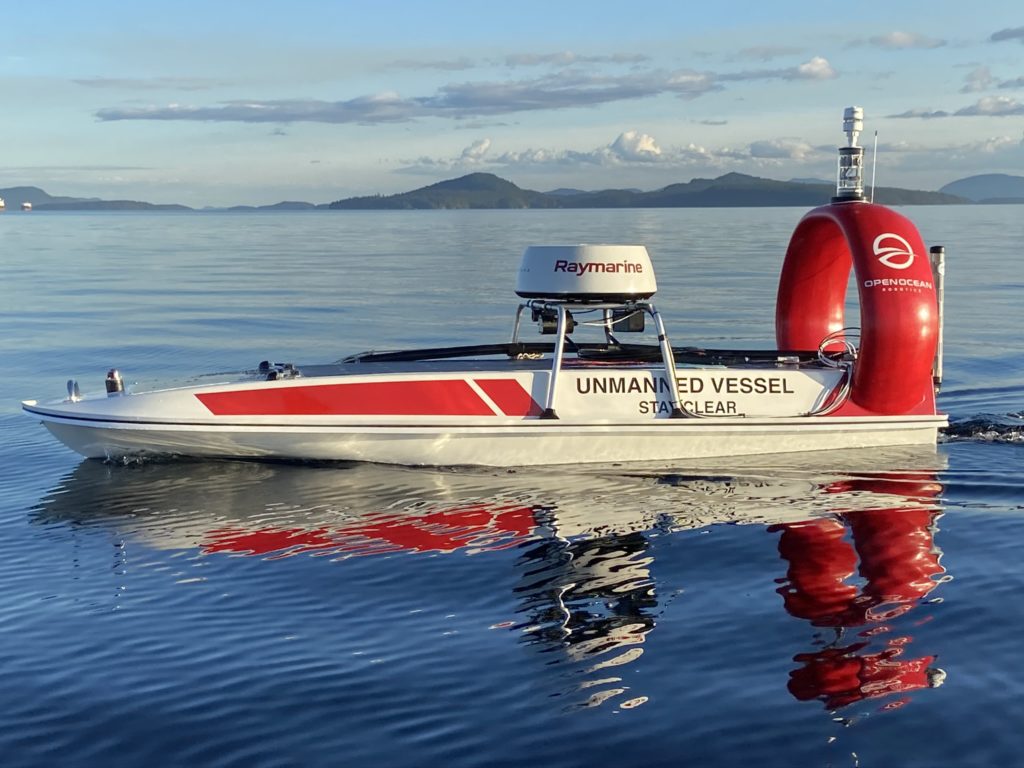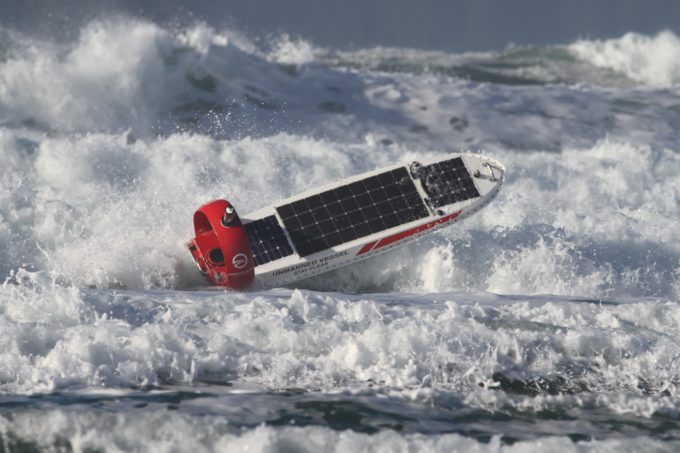Open Ocean Robotics tackles the twin problems of ocean data: we need to know more about our oceans in order to protect them, and we need to collect that data in a climate-friendly way.
The startup’s solar-powered, uncrewed vessels emit no greenhouse gases, can withstand hurricanes and other taxing weather conditions, and pose no risk of oil spills. They’re equipped with various sensors and modes of communication, and they can stay at sea for months at a time.
Open Ocean Robotics has numerous advantages over crewed survey vessels, which are the current standard, including lower costs and no risk to people. Perhaps most importantly, its boats eliminate the greenhouse gas emissions associated with crewed vessels: “Taking one offshore research vessel off the ocean for a week is like taking 100 cars off the road for a year,” according to Open Ocean Robotics’ website.
“We save 55 million kg of CO2 per uncrewed surface vehicle (USV) over one USV’s lifetime, specifically for hydrographic surveying,” says Carmela Gonzales, operations lead at Open Ocean Robotics.
The ocean data gathered by this type of technology has wide-ranging applications, from detecting and cleaning up oil spills, to plotting more fuel-efficient routes for ships, to monitoring for illegal fishing.
The startup’s Co-founder and CEO Julie Angus—a scientist, author, and recipient of the National Geographic Adventurer of the Year award—became aware of how little we know about our seas while she and her then-future husband and co-founder Colin Angus were rowing across the Atlantic Ocean in 2005-2006. This experience helped inspire Open Ocean Robotics, she says.

“You can’t protect what you don’t see and can’t measure,” Angus explains. The two-year-old company now has 12 employees and had its first commercial revenue last year.
One of Open Ocean Robotics’ key focus areas is marine mammal monitoring via acoustic sensors. The startup is a participant in the Offshore Wind Challenge, a corporate partnerships accelerator run by Greentown Labs and Vineyard Wind with support from the Massachusetts Clean Energy Center that aims to advance innovations in the responsible development of offshore wind.
The Offshore Wind Challenge has given Open Ocean Robotics the opportunity to bolster a young and growing industry that can play a major role in the energy transition, according to Angus, who says the team has learned a lot about its customers during the program.
Open Ocean Robotics meets with mentors from Vineyard Wind on a regular basis to get advice, insights, and direction on everything from technology integration to structuring field trials to what data would be most useful to an offshore wind developer like Vineyard Wind. The corporate mentors have also made helpful introductions for the startup, including to marine mammal experts.
“The opportunity to work with Vineyard Wind to really understand what they need is incredibly valuable,” Angus says. “It’s a real privilege to understand the inside of what the developers, the users, the regulators need in the offshore wind industry, and how we can meet that need. For a company like us, a startup that is continuing to develop its technology, there is no better way to guide that development than to know what the customer needs.”
Want to learn more about Open Ocean Robotics and the Offshore Wind Challenge? Join us at the Offshore Wind Challenge Final Showcase on Feb. 24!


